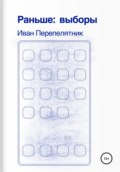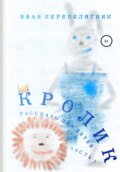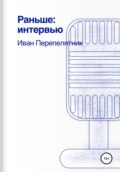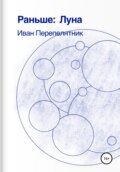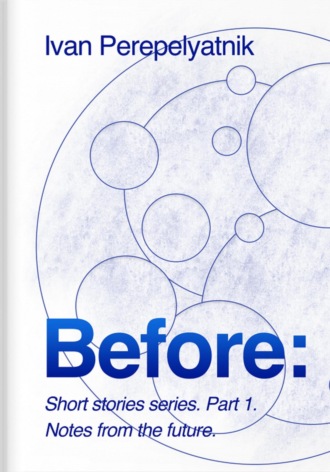
Иван Перепелятник
The Before Short Story Series. Part 1
Before: Politics
‘A small entity cannot absorb a large one. Or is it possible? Who knows, who knows. Which of these two can come out the winner? Who has a character, who hardens it, and who just happened to be born bigger,’ Robert stared at the fish in a fish tank in his office, twirling a can of worms in his hands. Aquatic inhabitants, who not for once had witnessed important meetings and negotiations in the home office of the owner, were used to receiving encouragement for exemplary behaviour in the form of a daily portion of live food. But that day something changed. There was no reward. ‘What’s wrong?’ the fish were asking a dumb question, looking closely at the changing shadows behind the barrier of their habitual habitat. ‘Today, friends, you have to figure out who is a wolf and who is a sheep. Who will rule and who will serve. Today we have to dot all the i’s. And it’s time for you, my devoted protégés, to pay your bills. No free ride. Have taken something, be ready to pay. Sooner or later.’ Robert tapped the glass of the tank with the knuckle of his index finger—the fish scattered in different directions. ‘Let’s see who wins this time!’ he closed the can of worms without throwing them any, and put it in the bar fridge built into the base of the tank.
‘See you tomorrow. Or maybe goodbye,’ Robert’s lips twisted in the semblance of a smile. He went to the bathroom, next to the office, to clean himself up before leaving.
‘Damn it! Just now I could have failed miserably!’ returning abruptly to the office, he took a pen from a pencil glass and a block of stickers on the table and wrote in a flamboyant hand: Do not feed! RR ‘No, not like that! Bad!’ Robert looked critically at what he had just written. He sat down at the table and carefully wrote on a yellow sheet—Do not feed! Stressing the instruction, he added: RGR. Leaving the office, he stuck a sticker on the wall of the fish tank and slammed the door behind.
In the bright light of a dressing room, his legs wide apart and hands on his hips, Robert was trying to figure out: ‘What to choose? Which accents will be right today? That’s the million-dollar question…’ He began to examine the racks of clothes methodically, his feet sinking into the light cream carpet covering the floor of the room. On the left side, on white shelves up to the ceiling, there were all kinds of colourful sweaters, turtlenecks and jeans, tweed trousers and cotton clothing. A row of closed shelves separated a large compartment with casual shoes, containing sneakers and running shoes, flip-flops and boots. Robert was critically examining his reflection in the mirrors in the central part of the dressing room. Regular work-out over the past two years had done their job. He was slim and fit, in good shape. But not over-dried and, even more important, not pumped up. ‘Not too much and just enough. I think it’s the right way. But, of course, we will go on exercising.’ His gaze moved on. A compartment with shirts in two long rows: white, light blue and various shades of blue on top, several light grey and pink; from below—in variegated colours with all sorts of prints, from classic paisley to trivial checkered shirts. In another divider, all kinds of accessories were stored—ties, bow ties, various belts, scarves and so on…Then again a large row with shoes, but this time of more reserved shades when occasions demand so. The second to last compartment contained multiple suits and dinner jackets. The sanctuary of the owner’s style was rounded out by a wardrobe with outdoor pieces, jackets and coats, down jackets, sheepskin coats and all kinds of winter clothing items. ‘I don’t think I’m going to need a hat today.’
‘What’s the weather like today, Joe?’ Robert asked his digital assistant.
‘Robert, it’s going to be great weather in Central London today. It’s sunny all day. Now the temperature is 19 degrees. During the day, the maximum temperature will reach 26 degrees.’
‘Good. And what would you advise me to put on, Joe?’
‘Unfortunately, Robert, I’m not ready to help you with that. I can find the contacts of a stylist who will be useful to you with a wardrobe. Should I complete this task for you?’
‘No,’ Robert replied thinking, ‘I don’t need a stupid stylist with a loopy advice, what I need is an image verified to the smallest detail that does the job.’
‘Okay. Let’s be logical. The meeting is rather semi-formal. Although, of course, it is important. A café full of tourists does not imply the expediency of a suit. It’s hot outside. Brown shoes, blue jeans with a brown belt, light brown polo. Pink socks will emphasize a liberal mood. A watch. Which watch to wear?’
‘So, let’s see what we have here…’ Robert came up to the shelf on the right and pulled out one of the drawers. In each cell of a large rectangular wooden pallet there were watches: mechanical, golden, steel, with straps made of leather or steel, sporty, with precious stones, round, square, rectangular, plastic… The electronic watch faces, powered by a wireless charger built into the box, were showing the synchronized time – "07:44".
‘It’s so much stuff in here… What to choose?!’ Robert carefully examined the rows of watches, matching the thought out style for the upcoming meeting with an important accessory.
‘I don’t know… I’ll make a neutral choice. An electronic watch in a gold case. Let it be so.’
‘Joe, what’s the temperature in this room? I’m a little hot.’
‘Robert, the current temperature set in the dressing room is 23 degrees,’ the assistant replied. ‘Shall I make it one degree lower to 22?’
‘Yes, please.’
‘All right, Robert. Thank you.’
Having dressed, Robert critically examined himself in the mirror:
‘There’s something wrong about all this. Stupid shoes. Need them more casual, but also brown. These classics are too pretentious. The belt doesn’t fit either. Need a simpler one.’
‘What do you think, Joe? How, is it? Everything OK or should I fix something?’
‘Robert, please specify what you mean.’
‘I see.’
Robert went down to the living room on the ground floor, where Antonio was relaxing on the sofa. Frames of the morning news show were changing on the screen on the wall. The guest in the studio was trying to be convincing while explaining something to the host in the studio, who, apparently, was not very happy with the direction the conversation was taking.
‘What kind of a weasel is that man, Antonio?’ Robert asked.
‘Who knows. I have no idea. Anyway, it is important for me to understand how the presenter will carry on with him. It is quite possible that we will also need to get into the program. So I’m trying to read it,’ Antonio picked up the communicator and started making notes.
‘Look at me—is everything all right?’
‘What’s the matter, Robert?’ Antonio turned to him. ‘Oh. I see. Antonio got up from the sofa and walked over to his boss, examining him from head to toe. ‘Well, I can tell you, I think everything is fine. Although… Wait… rather, you know, too good. It’s too proper or something. We need a slight imperfection. Maybe let the polo out of the jeans? Eh?’
‘No, it would be too informal.’
‘Well, actually, yes. I agree, Robert. Then here’s what. I know. We need to change the watch. Keep it simple and out of place.’
Robert looked at the chosen watch:
‘Okay. Good. Then, the best choice is up to you.’
‘Of course, in a moment,’ Antonio replied and went into the dressing room. ‘As you know, every detail is important in our business!’ climbing the stairs, he shouted out.
‘So it’s exactly the problem, that I know…’ muttered Robert.
Barel, who was sitting in the kitchen and reading the news, looked at the boss, distracted by their conversation with Antonio:
‘Good morning, boss,’ he said in a loud voice.
‘Oh, hello, Barel. I didn’t notice you. Everything OK?’
‘Well, yes. It’s all good. The weather is great today.’
‘Now, that’s fine, Barel. We’re going for a little walk today.’
‘Yes, boss. Meeting with the Chinese guys at 12:30?’
‘So it is.’
‘What do you prefer, boss—by tube or by capsule?’
‘It will be hot on the tube. We’ll drive somewhere closer to the meeting place. And then I’ll walk. And you have to stay in the car, Barel. I’ll go with Antonio.’
Barel looked at Robert:
‘If I must, then I must, boss. Whatever you say. Anyway, I’ll be there. I think there shouldn’t be any problems.’
‘I’m positive too. But, as our old friend used to say, the best improvisation is prepared improvisation.’
‘He was right, your friend, boss.’
Robert smiled.
Parliament
Barel, having made sure that everyone was in place and ready to go, took a seat on the first row in the capsule—the car smoothly started accelerating. On the control panel, he double-checked the route and microclimate settings for the drive. Everything as Robert prefers: 22 degrees, active filtration and ionization of the intake air, noise reduction and silence in the cabin. Then, his task was to look around and to not interfere.
‘Robert, should I go through the main points of the conversation as we’ve outlined it?’ Antonio asked.
‘Listen, everything is going to be as usual—no matter how many times you repeat, nothing will go according to the plan.’
‘This is, of course, true. But the key issues should be worked out in any case.’
‘I do remember everything perfectly, Antonio. Don’t you worry. Last night I double-checked everything and thought it through again.’
‘All right, boss. Whatever you say.’
‘He calls me boss when he feels hurt or when he’s nervous,’ Robert thought. ‘Everything all right with my fishes? Have they sorted it out among themselves or are they yet pretending to be civilized…’, he plunged into thoughts, looking at the houses in the streets of London on their way.
A new page in his life history opened with London. Robert’s parents decided to try their luck in the States in the middle of the 21st century, emigrating from the UK to Los Angeles. As it sometimes happened to the middle class English aristocracy, the inheritance received by his mother did not provide even for paying utility bills in their estate, not to mention the maintenance of the ancestral nest at the adequate level. His mother was convinced of her innate artistic talents, but she believed that European venues would be too cramped for her…and it was not for her pure-blood baroness status, to measure herself against the so called local élite, as she used to say, asserting herself. A different matter altogether was the Olympus of Hollywood, with its boundless potential of studios that have written their names into the walk of fame of the world film industry. In the end, the house was sold, and they left for the west, full of new expectations. She was deeply and genuinely surprised though with things going wrong there, in the New World as well. To be fair, for the rest of the Richardson family, who remained to languish on the ever foggy island, the news from the other side of the Atlantic was not a surprise. The newcomers had to move to the suburbs of Los Angeles, Emily began working as a sales assistant in a local shop, and her father, never finding himself in the new world, could not stand new challenges and took to drinking. Robert’s uncle, Emily’s brother, who remained at home in England, managed to get back on his feet and achieved a certain position. He was well versed in marketing and being a good psychologist found his vocation as an excellent PR man, combining in his practice an understanding of the laws of perception and clients’ business interests. Later he opened his own agency in London. It was Uncle Oliver who invited his young nephew to London and agreed to pay for his studies at one of the best business schools—Oxford University. There was only one single condition—having graduated, Robert had to join his uncle’s team and develop the company together with him. Later, however, other circumstances of the deal came to light, which Robert did not suspect initially. Finding himself in the middle of the capital for the first time as an adult, Robert fell in love with its imperial greatness, inspired by the history of great conquests, financial ambitions and achievements, political intricacies. To a young man who grew up in the City of Angels, London appeared to be one of the pillars of the modern world.
‘Boss, from here you have to walk about three hundred meters to the restaurant where you
will meet the Chinese partners. Antonio, do you know where to go?’ Robert, who nearly slipped into slumber during the smooth movement of the capsule, was stirred by Barel.
‘Of course, I know where we should go, Barel. Although I am not a local, I try to do my job professionally.’
‘Don’t get so nervous, Antonio. I am just doing my job, like you are. Not joyriding’
‘That’s it. All right, Barel. Thanks. Let’s go,’ getting out of the car, Robert waved his hand to the assistant.
Noisy and discussing enthusiastically the impressions of the morning hours, tourists filled in the entire space of the café. Antonio approached the waiter, said something, and they were promptly taken over to a table near the window where the two Asian people were sitting.
‘Good afternoon, gentlemen,’ Robert greeted them, extending his hand.
‘Ah! Here you are, Robert!’ the two Chinese stood up and greeted the new arrivals. ‘Please take your seats, Robert and your friend …’
‘This is my assistant, Antonio. Have you already made an order? They do excellent fish and chips here. I would strongly recommend it, gentlemen,’ Robert immediately wanted to make it clear who the master of the situation was, and who was only a possible contender for the position of the purse. ‘Thank you very much, Robert. We’ll probably stick to tea and biscuits. We have a busy schedule today,’ the Chinese man was clearly making Robert understand that his cheap tricks were not working on them.
‘Of course, Heng. And we’ll go for fish and chips. Antonio?’
‘Yes, Robert,’ Antonio raised his hand, calling the waiter over.
‘So, Heng,’ Robert continued, ‘how do you like the view?’ Robert waved to the window looking at the Palace of Westminster.
‘The Parliament is very beautiful and certainly grand, my dear friend. It’s very kind of you to invite us here for tea.’ Heng nodded, smiling slightly, confirming with a gesture his readiness to carry on a dialogue. His thick and grey hair stood out unruly and a little funny on his head. Both Heng and the young girl accompanying him were dressed in formal business suits. Moreover, it seems that they’ve bought them quite recently, they were new.
‘Thank you. We are glad to see you and are glad to have the opportunity to discuss business. So you say you’ve been in London for some time now?’ Robert looked at the girl.
‘Not really, Robert,’ Heng replied, ‘we’ve arrived only a couple of days ago. But, as I mentioned, the agenda is very tight. Certainly you understand, our main task is to consider the risks and make…take the right decisions. Talking about politics, obviously, the right strategy would be some diversification, so to speak. Of course, for such an approach one need a certain level of resources and assets.’
‘I quite understand you, Heng. Betting on one horse…’
‘Okay, Robert. It is important that we are open with each other here, and can dot all the i’s and cross the t’s. May I ask you, Robert, what is your plan? The general line?’
‘That’s why we’re having this meeting. The plan is simple. Step one. In a year and a half, as an independent candidate, I will enter this symbol of legislative power. Step two. In the next cycle, I plan to enter another door with a well-defined street name and a house number.’
‘And in which capacity are you planning to take your second step, dear Robert?’
‘As the host of the house, Heng. You shouldn’t have given up the fish after all. They do it great here.’
Heng paused for a few seconds, assessing Robert.
‘You have a very clear strategy, Robert. But aren’t your plans too hasty?’
‘My plans have, as I expect, quite a tangible basis. Isn’t that right, Heng?’ Robert began eating with his fingers and somehow, the process seemed quite aesthetically pleasing.
The Chinese took a cup of tea and looked away in the direction of the Houses of Parliament.
‘Impressive, isn’t it?’ Robert asked.
‘Yes, the history of your country, Robert, certainly deserves a careful study,’ Heng replied. ‘You are aware of our goal. We think about our interests.’
‘Of course. As well as all the parties to this process. Finding the right balance is the subtlety.’
‘That’s right, Robert. And faith alone, as you may assume, is not enough to understand how the parties could interact.’
‘All right, Heng. I will briefly outline our expectations and our understanding of the value of the parties involved. First of all, I agree with you—the plan I mentioned does not really contain details, but obviously we understand in a quite tangible way which direction to take and how to proceed. My life story, professional practice clearly shows how we achieve results. And, of course, what results can be counted on. But may I assume that we wouldn’t have this discussion with you here were it not for your forecasts and models clearly demonstrating to us what we are talking with you about,’ the assistant nodded her head.
‘Then, the second point. Why we believe that it is in this negotiation format that we could be useful to each other. We need a slightly different resource basis. Not the one you mean, dear Heng. The events that I experienced in my life, which in fact shaped me, as well as my previous activity focus when I was involved…so to say, in relationship marketing—in a word, this basis gives me a clear understanding of how we will achieve our goal. We need access to an analytical resource that is not burdened with imposed restrictions. That’s the key question. The base you are talking about is just an additional pleasant bonus. Nothing more.’
Heng blushed and stopped chewing cookies. He was clearly making a lot of effort to keep himself under control. Heng quietly said something to his assistant in Chinese. She got up and went somewhere.
‘Very well, Mr. Richardson. What do you suggest?’
‘It’s obvious. Our countries should be much more active in fulfilling the potential of co-operation, which does not manifest itself in any way today,’ Robert looked at his counterpart, who seemed not ready for such a conversation at all. It was obvious that he also did not have the authority to take any such obligations either. But no one would have expected it, to be fair. He knew that the guy sitting opposite was only an intermediary—such were the rules of the game.
‘I understand,’ Heng took a napkin and wiped his lips. ‘If we go back a little. As you called it—the resource base that you mean. I would assume that the deal won’t work without this component.’
Robert was holding a glass of apple juice with ice obviously in a completely unnatural way—his two fingers were turned in the direction of Heng. Heng, unable to restrain himself, with his eyes widened, blushed again. Robert smiled.
‘Well, Mr. Richardson. I have only to thank you for the meeting. You’ve chosen a great place to talk,’ pointing towards the window, Heng noted, bowing slightly. ‘All the best to you.’
Tourists were flowing in. New visitors were crowding at the entrance, wishing to enjoy the view of the buildings of the Palace of Westminster with its hundreds years of history at lunch. Next to the table where Robert and Antonio remained sitting, a group of teenagers settled down, vividly discussing something with the outbursts of swearing of all the possible sorts from time to time.
‘Why wouldn’t you eat fish? Really very good.’ Robert took a napkin and began carefully wiping his greasy hands.
‘Have you had too much, Robert?’ Antonio took wet wipes out of his bag and handed them to his boss.
‘Thanks. What do you mean?’
‘You know what.’
‘An eight-digit number of the resource base or something?’ Robert smiled.
‘That’s right.’
‘First of all, they need us much more than we need them. We can do without them, as you know well. But they won’t without us. So, we have nothing to lose if friendship is not in place. Then I thought I should take care of you, too. Let’s see what decision our Chinese friends will make.’
Robert looked across the river at the parliament: ‘Today, bathing in the sun, it shines like never before, reflecting the rays of power and greatness. We will definitely come back to the conversation with this Kim. He will remember this meeting for the rest of his life, and I won’t even recall his name.’ Robert felt excited.
Cheremkhovo
Two hours after the tedious flight from London to Irkutsk, and finally Antonio took a transfer to the hotel in the city centre by an air taxi drone. He was alone in the car—nothing prevented him from taking a bird’s-eye view of the Siberian city where he was for the first time.
‘What’s the temperature outside, … taxi?’ having decided how to put it, Antonio asked a question.
‘It is currently 29 degrees plus in the city center. It’s not going to rain today,’ the digital assistant replied.
‘How much longer will it take us to fly to the hotel?’
‘The journey to the Siberia hotel will take no more than 12 minutes.’
‘OK.’
The city center with high-rise buildings stood out ahead in a light haze. Skyscrapers tore apart the horizon, piercing the cloudless sky with sharp spikes. Antonio looked down. Apparently, they were flying over the suburbs of Irkutsk. Private houses, wrapped in a green blanket of foliage, were gradually thinning out, giving way to modern multi-storey residential quarters, through which groups of church domes could be seen in the distance. Their golden arches dazzled the eyes, reflecting the sun rays. He has counted at least six churches already.
‘And where is Lake Baikal, taxi?’
‘Lake Baikal will be on the left side all the way through the flight of the drone. But at this altitude you will not be able to see Lake Baikal. We will soon fly up to the Angara River. I can give you a sightseeing tour of the city center.’
‘Not this time. I don’t have time for this.’
Antonio was pleasantly surprised. He expected to see a provincial town in the middle of nowhere, but there was Brussels or maybe Munich in front of him. Only the Orthodox churches along the way would not let anyone to be misled about the city origin. The well developed infrastructure of the modern centre, surrounded by cosy and green suburbs of one of the largest Siberian cities, fascinated Antonio.
The taxi flew up to a high-rise building, on which roof he noticed a landing spot marked with circles. The taxi slowly started to descend. As soon as the hum of the electric motors died away, a hotel employee approached the drone.
‘Mr. Vidalgo, welcome to the Siberia Hotel.’
‘Good afternoon,’ Antonio replied. His headphones with a built-in translator on, he could communicate with others, continuing to speak English and understanding perfectly his interlocutors.
‘Did you have a good flight? Can I help you with your luggage?’
‘Thank you. Everything is OK. I only have this bag.’
‘Of course. Will I take you to your room or would you like to go down to the lobby?’ the hotel employee asked checking.
‘Straight to the room, please.’
‘Very well, Mr. Vidalgo. Would you follow me, please.’
While waiting for a guest in his room on the fortieth floor, Antonio ordered coffee to cheer himself up a little. Initially, the meeting was supposed to take place not far from Irkutsk, in Cheremkhovo, which had a rather ambiguous reputation. Earlier, over a hundred years ago, coal was mined there. But today the fate of the town was related to completely different opportunities. Cheremkhovo was considered to be one of the world’s informal hacker centers. It was possible that such a fame was to some extent supported and cultivated by certain government agencies. They said that the Russian security services were related to the activity in Cheremkhovo. It would be naïve to assume that the authorities did not know what was going on under their very noses. Most likely, once a free and informal community of talented programmers got close or was forced to make certain contacts with the state. But it didn’t bother Robert at all. So it shouldn’t bother him either. And yet Antonio preferred to hold a meeting in Irkutsk.
He came up to the window looking at the city centre, where cargo and passenger electric drones were flying in-between high-rise buildings along several air corridors. Each corridor was dedicated to movement in one direction only. From a distance, it reminded Antonio of ants’ paths where they would diligently carry all day long whichever sticks, bugs and larvae. The Angara River was visible between the buildings, its water surface illuminated with the bright sun, and pleasure boats and yachts gliding. For a moment it seemed to him that there was something familiar about the view—it was as if he were in his favourite bay in Naples. A knock on the room door brought him back to reality.
The guest, who introduced himself as Alexander, was sitting opposite Antonio in the living room at a round table in front of the window.
‘Won’t you mind my closing the blinds—the sun hits right in my eyes,’ Antonio approached the window and began to close the blinds.
Alexander continued to silently scrutinize his potential client, taking sips from a bottle of coke.
‘Our mutual Chinese friends, Alexander, said that you are able to help with our problem.’
‘It is quite possible that I can. Let’s discuss what exactly you need, Anton.’
‘Antonio. My name is Antonio.’
‘All right, Antonio,’ Alexander replied indifferently.
‘I need a secure, reliable and remote access channel to a powerful quantum machine that can solve the required task. This is the first. At the same time, the computer must have access, must be connected to international databases. The second. We need a good programmer who is ready to do the job without asking any questions on the computer mentioned in point one. That’s all.’
‘It’s all so simple for you, Antonio, isn’t it. What’s wrong with the PAX then?’
‘If it were OK, we wouldn’t have communicated with you, Alexander. We need to solve a number of tasks, process a large array of data according to the specified parameters. The job must be done without advertising either the task or the result. Confidential. Working in the PAX system does not satisfy us with the approach required.’
‘Well, let’s assume the task is clear to me,’ Alexander pulled his cap lower on his forehead.
‘D’you have any idea how much such services will be?’
‘And how much?’
‘A lot. Very expensive.’
‘Very expensive—how much is it?’
‘And how much data are we talking about?’
‘Let’s just say we should focus on an array with several billion variables that should be evaluated for their dependence on a wide range of various conditions.’
‘And what does that mean?’
‘It means, Alexander, that the job is not an easy one. And that the specialist must meet the requirements and conditions of the task.’ I’d better calm down, Antonio thought.
‘I’m asking questions just to see if we can fulfil your task. Would you give some example of what needs to be solved.’
‘Okay,’ Antonio replied, his lips together. ‘OK. Here you are, for example: what will the optimal route for a new metro line in Irkutsk be: where is it best to locate stations, taking into account the activities citizens carry on in their daily routine?’
Alexander paused and chuckled:
‘I see. Wow, such a task.’
‘This is an example, Alexander.’
‘I can’t give you an answer now. You are asking an open question, which implies access to a serious database, hardware and all that, and the level of someone’s skills to do it. For how long do you want to stir up this story?’
‘One year.’
‘Ha! Just one!’
‘Well, yes.’
‘It‘ll be a six-digit figure. That’s for sure,’ Alexander looked at Antonio from under the peak of his cap, raising his head.
‘I think we can come to an agreement. When will you be ready to advise the details of your proposal, so that we can make all the arrangements?’
‘I’ll be back with the information within a week, Antonio.’
‘I am not planning to stay in Irkutsk for a long time. Can you clarify the information today?’
Alexander took the bottle and finished his coke:
‘Good. We’ll be in touch.’
Program
‘My program is based on social challenges important for our society. On those screaming points of pain that people are experiencing here, today and now. What do we care most about? What everyday problems and challenges do Londoners have to face? What can we, as lawmakers, do for society to solve long-overdue problems? Problems that for some reason were ignored by those who should sort them out, to whom the voters had delegated their voices. Why weren’t those voices heard? Why are the issues that determine the standard of living of our people ignored? Have they not found time for it among their endless spinning of political schemes, in which, of course, they are completely absorbed? This is in the root of the problem.
There is no need to invent anything or to think out flimsy suggestions of what has to be done. The whole program of actions is around us! You just need to look around carefully. You just have to talk to people! From us, the executors of your mandates, only one thing is required – to listen!
I’m asking questions!
Why isn’t there an entrance to the underground highway built in our area yet?!
Why is the renovation of Bolton Gardens, which has been going on for the second year, not yet completed?!
Why do our residents have to queue for two months to see a dentist, even if a surgery is necessary?
Why was the grocery closed, the one on the corner of Warwick Street, where social coupons were accepted,? Isn’t it there that another new business center is now under construction?
I do ask questions – why wouldn’t they listen!!’
The crowd cheered. Someone whistled and began to shout out:
‘That’s right, Robert! Right! But what can you do? What are you suggesting, Robert! What, Robert?’
‘I do hear you! And is this my answer. The first thing we need do is to make those whom we trust to represent our interests, to make them responsible for their words, responsible for what they promise! Elections pass and everything is quietly forgotten. The so-called representatives of the people change their masks so quickly, join some big parties, blurring into the vast oblivion, where they can no longer be seen, where they are only a small part of something big, so that we can no longer reach them. I wonder—is this the choice we make?!’



